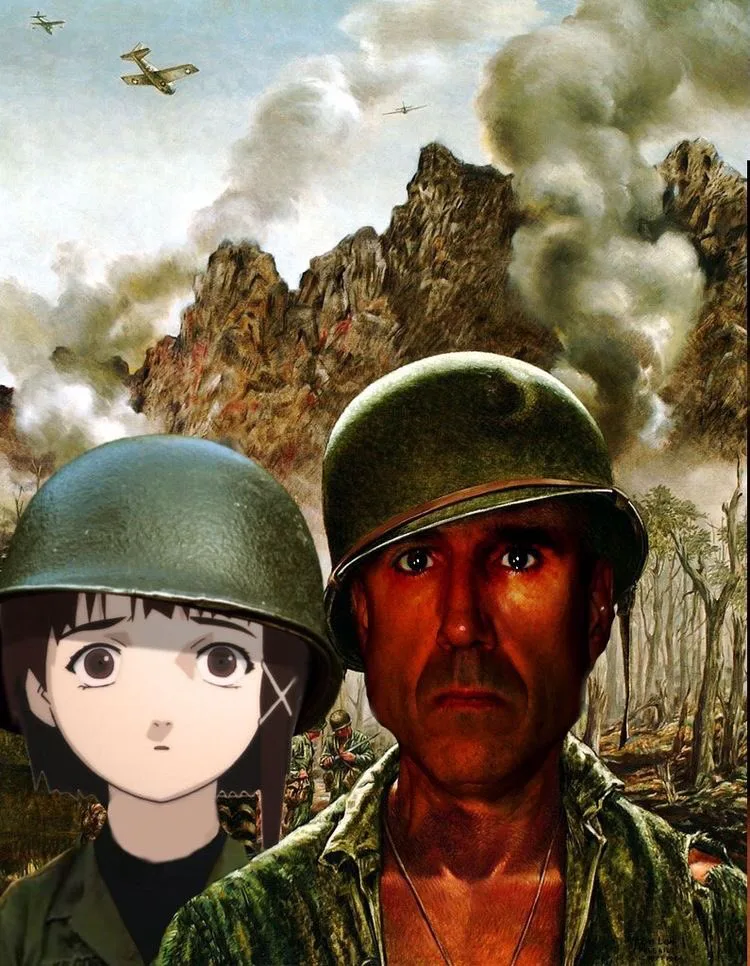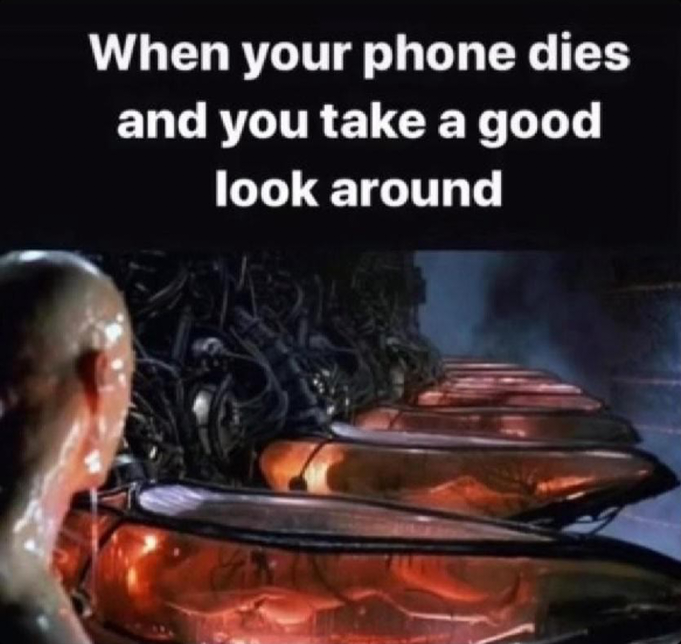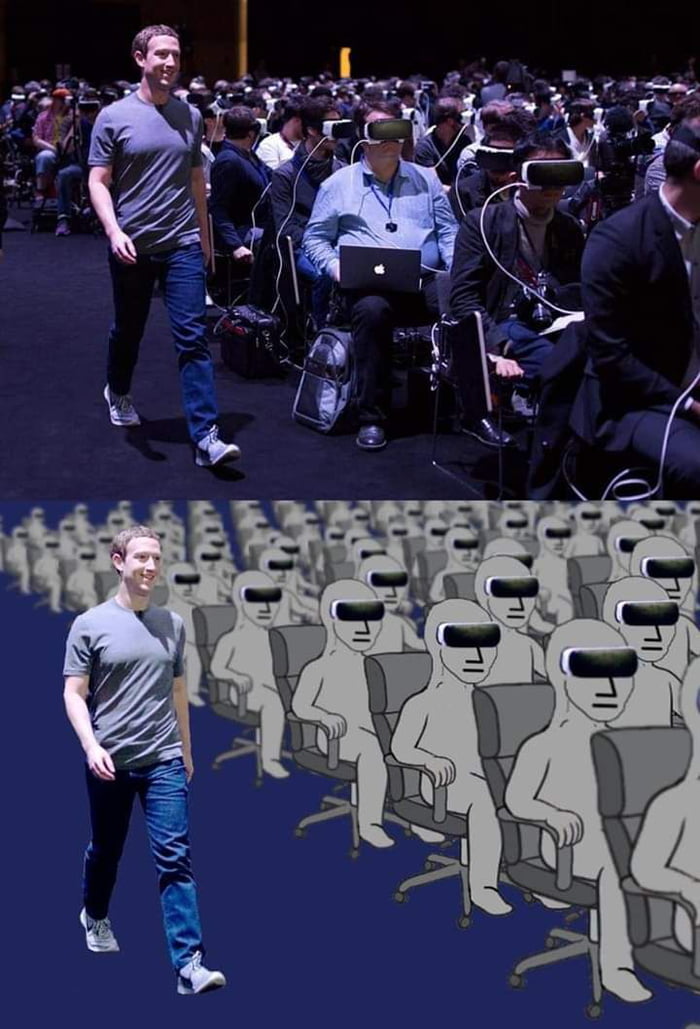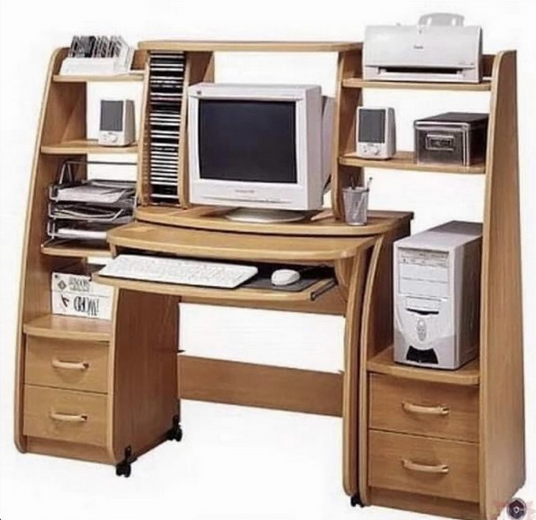An Ideal Web

Social media and the current state of the internet are deplorable. Why and how can we revert this?
The Failure of Social Media
Nowadays, it isn't unusual for the internet as a whole to be solely attributed to social media, as if it's the only thing on the internet. However, we all know that social media is not without its faults. In this article, we'll analyze some of its main problems, so we can effectively avoid repeating its mistakes in our alternative web.
The Naivety of Attempting to Exchange Information
Social media not only disincentivizes posts from being thoughtful or in-depth, but it also prevents them from doing so. The ephemeral and short-form nature of social media reinforces this.
Social media sucks, either way - even if it's open source/decentralized
social media. You never get any engagement on your effortposts and -
due to the chronological nature of social media - they basically
evaporate in a few hours, never to be seen again.
The software even discourages effortposts with the character limits;
the whole thing is pretty much designed for flamewars [...]
-digdeeper.club, on Mastodon, Pleroma, and Fediverse
Sure, there are exceptions. Some activism and exchange of information are possible on modern social media, mainly when the information or idea is simple enough to illustrate without much elaboration, or when used for advertising longer-form content or via infographics. However, these are rare occasions and are still subject to other problems of social media.
The Magnifying Glass Effect
Because of how short form modern social media posts are, everything published on social media is, by default, out of context. It distorts the messages of its publishers, as complex ideas have to be oversimplified into few bite-sized sentences, it subtly overemphasis and exaggerates particular parts, losing context. The brevity only leaves room for blanket statements.
Writings, interviews, podcasts, and long form video content are infinitely better forms of conveying and exchanging ideas, they suffer significantly less from this effect as they avoid oversimplification, providing the necessary context for deeper understanding.
Alienation and Overstimulation

Many primitive peoples, when they don't have any work to do, are quite content
to sit for hours at a time doing nothing at all, because they are at peace with
themselves and their world. But most modern people must be constantly occupied or
entertained, otherwise they get "bored," i.e., they get fidgety, uneasy, irritable.
-Ted Kaczynski, Industrial Society and Its Future
Because of how addictive and stimulating social media is by design (constant notifications, endless feeds), it's very easy for social media to alienate people from their own real life communities and place them in an unnatural over-socialized state where their online personas, likes, followers, profiles, etc., are more important than their real lives, actual human interactions, their actual selves, their own understanding of things, health, hygiene, personal growth, and even their surroundings.
Their social media is now the over-socialized "chronically/terminally online" (as they themselves call it) type's ego, they've become one with their internet image. Nothing is real until it's on their internet profile. The need for a journal to express oneself isn't inherently negative, pen and paper personal diaries are often considered therapeutic, but when mixed with social media, this makes the over-socialization run even deeper, as they're constantly being watched and judged by others online. This isn't necessarily the case for blogs or pen-and-paper journals, they don’t impose the same performative pressure or ego attachment if used correctly.
Sites like Letterboxd and Last.fm encourage users to care more about how their profiles and "scrobbles" look than the actual movies/music itself (this is not necessarily true for all logging sites or to all users of said platforms, it depends on the level of over-socializing) in the same way mainstream social media encourage people to care more about their pictures and posts than their actual experiences themselves. This in itself is extremely unnatural, unhealthy, and damaging to people, but it doesn't stop there.
Yes, Everyone on the Internet is a Loser. (Peertube) - (YouTube)
"I WISH I HAD MORE INTERNET FRIENDS." - Literally Nobody (Odysee) - (YouTube)
Manipulation

- Social Engineering
- Surveillance and Exploitation
This state creates something analogous to both Skinner's Box and Plato's Cave, the algorithm works as operant conditioning, as behaviour desired by the platform operators are actively encouraged and rewarded by others in the Plato's Cave ambiguous community guidelines and censorship create in social media.
The idea that social media like counts may affect the way content is perceived might come off as ludicrous to some, but here's an example of this happening at a very primal state: There are people who judge whether a video is funny or not based on the like count of the video. People have been engineered to a degree that even their most basic reactions have been programmed, one can only imagine how far this can go with people's ideas and worldview.
Social Media as Social Control. (Peertube) - (YouTube)
Social Media: Anything for Upcummies! ⬆🍆💦💦 (Peertube) - (YouTube)
When you engage in modern social media not only you're being spied on and used but, most importantly, you're also allowing this dystopia to continue to exist by contributing to the network effect of social media. For a long time now social media and the modern web have been using people not only for social control but also for data-harvesting and other forms of exploitations and espionage, the Edward Snowden’s revelations about the PRISM program made this very clear.
Background and Direction of Our Cyberpunk Dystopia (Peertube) - (YouTube)
Reliance on Social Media and Monolithic Services
Most people don't own their own websites. Sometimes, even organizations and projects lack their own websites, relying instead on social media and other platforms. Ordinary people are alienated from creating content on the internet themselves. Instead, they spend their time working as content producers for social media and monolithic services, while social media, mass media, and a few dominant websites shape the internet.
- Examples of reliance on monolithic services:
- YouTube has monopolized video sharing, transforming many potential writers into "YouTubers" and incentivizing low-effort, pretentious, or insincere content rather than fostering informative content or thoughtful videoblogging. Even major corporations rely on YouTube to host their music, music videos, trailers, journalism, TV clips, and more.
- Fandom.com has monopolized media wikis
- Blogspot has monopolized blogging
- Github has monopolized Open-source code hosting
- Spotify has monopolized music. Some artists don't bother mirroring their content to other platforms.
- Social media, platforms like Substack, messaging services (they're often used as newsletters) have monopolized newsletters, articles, and independent media
- Articles, Mainstream Media Vehicles
- Mass media journos and their cattle
- Artificial intelligences
- Shills
- Anything but real, regular people
This way, most people's idea of the internet have been reduced to social media plus Wikipedia, mainstream media, and the monolithic services that sometimes appear on search engine results. Because of this and tech illiteracy, some people are scared of all sites aside the mainstream ones. Not mass media, social media, mainstream service, or Wikipedia? That's a "suspicious link", That's a virus.
Most internet articles and the content outside social media and these monolithic services are written by:
What Went Wrong With the World Wide Web? (Peertube) - (YouTube)
Old Web Romanticism

There's quite a lot of homesickness for the 90's internet today. (i.e., Neocities "retro" sites, TheOldNet, Yesterweb) Sure, there are some positive aspects to this, and many of the participants of these movements already understand some of contemporary web's technical problems (some are just in for the aesthetics or for their own amusement), but without a clear understanding of what made the old web great, and what made the new web not, these movements might end-up replicating the same issues of today's mainstream web.
Main problems of this fed:
- Static hosts (i.e., Neocities, ichi.city, Nekoweb) are still centralized. The actual decentralization would come from self-hosting. See LandChad.net
- Webmasters who still engage in over-socializing are still vulnerable to social engineering and might bring this to the "personal web."
- Even completely self-hosted websites might replicate the fleeting nature of social media or propagate alienation and over-socialization. (both to the public and to the webmaster)
- There isn't anything magically good about the old internet just because it was from the 90's or the early 2000's, it had some of their problems of their own. (i.e., pop-up Ads, scamming, malware)
Virtues the old web had that could inspire a better internet today:
- People actually browsed the internet and didn't just look at the ~5 social media sites or mainstream media all day
- Articles were written by humans
- Lack of monopolies, surveillance, and over-socializing
- Unintentional minimalism and lack of web bloat because of limitations of the time
- Good and user-centric technology
Misconceptions and Red Herrings
- Commercialization, Capitalism
- Social Media
There were plenty of corporate and commercial sites in the 90's and in the early 2000's, they not only were more privacy respecting and minimal but also coexisted peacefully with more personal sites and such, GeoCities and AOL Hometown themselves were commercial, after all. People in "old web" movements tend to blame modern web's problems on commercialization and greedy profit-driven sites and organizations, an argument could be made that as the web got mainstream commercial sites suffered from supply and demand and the quality diminished, or that giant corporations ruined the internet with streaming and other monolithic services and social media, but commercialization was always present on the internet and wasn't always a problem.
The problems here discussed are not inherent or unique to social media. Social media wasn't exactly a problem when it was used wisely, it was still proprietary, but this was significantly less of a problem, it was used primarily to exchange small ideas, humor, non-over-socialized communication, and interacting with real life communities, and it had very little censorship. It was actually "social" and the problems here discussed were much less prominent. It even managed to coexist with other more personal and independent sites.
This isn't possible today because the intricate structure of modern social media makes it virtually impossible, hence why most people nowadays think the idea of blogs and personal websites are ludicrous or passé, modern social media removed the use-case for personal websites in favor of a self-inflicted nightmare.
An Ideal Web should be...
- Antisocial by design, with minimum socializing.
- Written by real people.
- Focused on the exchange of ideas, meaningful discussions, and creation. (i.e., Art, Software)
- Decentralized, minimal, free as in freedom, and open-source.
Available solutions:
- Offline-first software, pen and paper, real life.
- RSS feeds and alternative privacy respecting frontends for mainstream sites.
- RSS feeds, autonomous websites, self-hosting.
- Articles, long form videos, podcasts, interviews, independent wikis.
- Slow-paced image-boards, decentralized and alternative platforms, minimal forums, web-rings, and the darknet.
The internet should shift from being a fast-paced, shallow and centralized artificial space to a slower, more sustainable, thoughtful, and decentralized hub for genuine information exchange, discussion of interests, creativity (as in pursuit of edifying and useful projects), and real-life enhancement, something to enhance the real world and the human experience, rather than a unfit replacement for it.
Stop using social media, but not just social media, distance yourself from using all over-socializing, overstimulating, addicting, and alienating "media" you can. Slow (emphasis on slow because some internet niches are too fast-paced) and anonymous algorithm-less privacy respecting image-boards, forums with minimal profile customization, blogs, and personal websites are all great fixes to our present internet, but overall the better web is as much less web as possible.
Notes
- Pessimism and Gradual Change
- IRC, Chatrooms, and Chat Protocols
Of course changes against the modern web won't happen overnight, but with the information available to the people, systemic changes become inevitable and unavoidable. The goal here is not to reform social media or the modern internet, but to build the alternatives in parallel to the existing system, rather than expecting immediate systemic collapse. This article is "E for everyone", from avid social media users to the people who don't use it but still use other alienating, over-socializing, or compulsively addicting technologies, and everyone who's disillusioned with the modern web in general but doesn't quite know why.
They're obviously very fleeting, fast-paced, and short form, even more so than social media, so they're not very adequate for spreading ideas or meaningful discussions effectively. They might also alienate some from real life if misused. They can be quite useful and harmless if used for interacting with real life communities, as mere contacting means, or used with temperance.
Further reading
Why I Went 2 Years with No Internet at Home (Peertube) - (YouTube)The Free Web - by Ese Grobet
The uselessness of social media - by interloper, ideas seemingly borrowed from Luke Smith
Published on November 17th 2024, edited November 30th 2025







